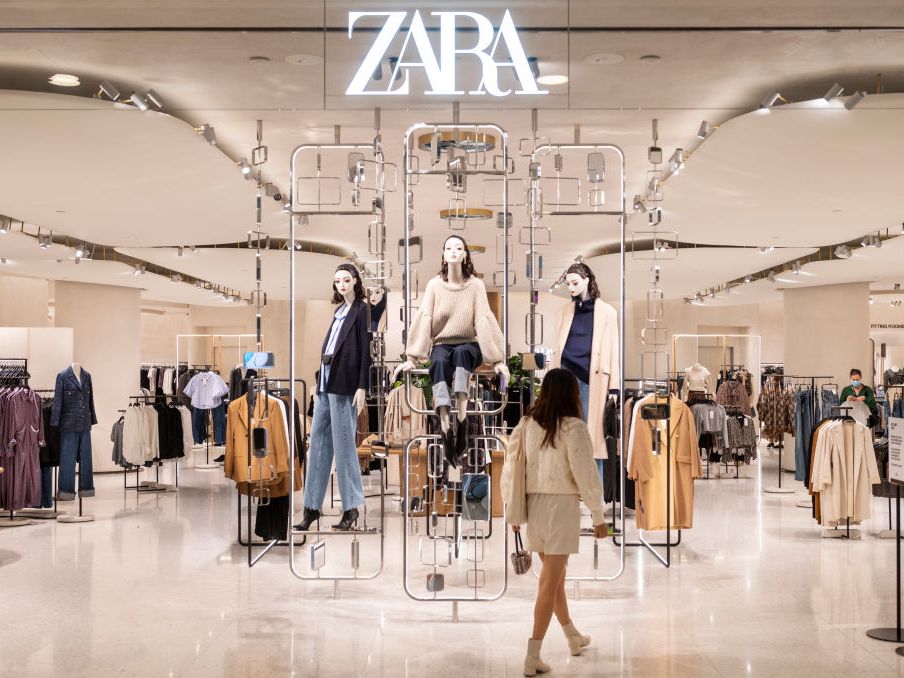
Zara's parent company, Inditex, is intensifying its commitment to sustainability by setting ambitious new goals, which were unveiled by CEO Óscar García Maceiras during the company's annual general meeting. One of the key objectives is to accelerate emission reductions.
Inditex has updated its 2030 reduction strategy to focus on scope 1 and 2 emissions, aiming for a 90 percent decrease from the 2018 baseline. Additionally, the company aims to reduce scope 3 emissions (value chain emissions) by 50 percent compared to 2018 levels. While striving for "net zero" emissions by 2040, Inditex acknowledges that 10 percent of its greenhouse gas emissions are challenging to eliminate and will be offset.
The company is taking significant steps towards sustainable sourcing practices. It will prioritize the use of "preferred fibers" in its production, which are defined by the Textile Exchange as fibers or raw materials with a smaller environmental impact. Inditex is also focusing on biodiversity conservation and has committed to restoring or improving biodiversity across 5 million hectares. It plans to donate 15 million euros to Conservation International's Regenerative fund and provide an additional 10 million euros for restoration projects through the World Wildlife Fund.
Zara’s “Pre-Owned” Program
Inditex recognizes that materials play a crucial role in reducing emissions and environmental footprints. Currently, 30 percent of the company's emissions stem from the extraction and processing of raw materials, impacting natural resources such as water and soil. To address this, Inditex will increase its use of organic and recycled cotton, European linen, and viscose sourced from trees.
By 2030, the company aims to fully integrate "lower impact" materials, with 40 percent coming from conventionally recycled textiles and 25 percent from organic or regenerative farms.
Inditex is also exploring next-generation materials that are not yet available at an industrial scale, investing in start-ups like Circ and collaborating with Infinited Fiber. In terms of circularity, Zara's Pre-Owned resale platform, launched in the U.K. in October, will expand to key markets by the end of the year. The company has also enhanced its website, introducing dynamic results based on purchasing history. With 166 million worldwide downloads of the Zara app, Inditex continues to embrace digital innovation.

Inditex's Growth Ventures and Commitment Amidst Market Challenges
While Inditex operates various brands, including Massimo Dutti, Pull&Bear, Bershka, Stradivarius, and Oysho, the company remains committed to expanding its presence in new markets. Zara has recently entered Cambodia, Oysho has expanded to the U.K., and Stradivarius is set to launch in Germany in the second half of the year. Although Inditex has exited the Russian market, CEO Maceiras did not rule out a potential return, emphasizing the possibility of operating through franchise arrangements. Despite challenges, Inditex views China as a strategic and relevant market, with Zara, Massimo Dutti, and Oysho still operating there.
Maceiras highlighted the company's growth focus on the United States, where Inditex has 30 projects underway. This includes store revamps in major cities like New York, Boston, and San Francisco, featuring the new design concept, as well as an upcoming store opening in Baton Rouge, Louisiana. Maceiras emphasized that Inditex captures 50 cents of every $100 spent on clothing in the U.S., underscoring the immense growth opportunities the market presents.
As Inditex continues to expand and pursue sustainability initiatives, it remains committed to supporting its employees and paying leases and wages in Ukraine, despite the ongoing war. The company expresses hope for the future and aims to resume its operations in the country in line with group standards. Inditex, has made commitments to sustainability and has obtained various certifications and recognitions across its brands, which may also apply to Zara. Some of the certifications and initiatives adopted by Inditex include:
- Global Organic Textile Standard (GOTS): Inditex has used GOTS-certified organic cotton in its clothing production.
- Forest Stewardship Council (FSC): Inditex supports responsible forest management by using FSC-certified materials, such as paper and packaging products.
- Better Cotton Initiative (BCI): Inditex supports the BCI, which promotes sustainable practices in cotton production.